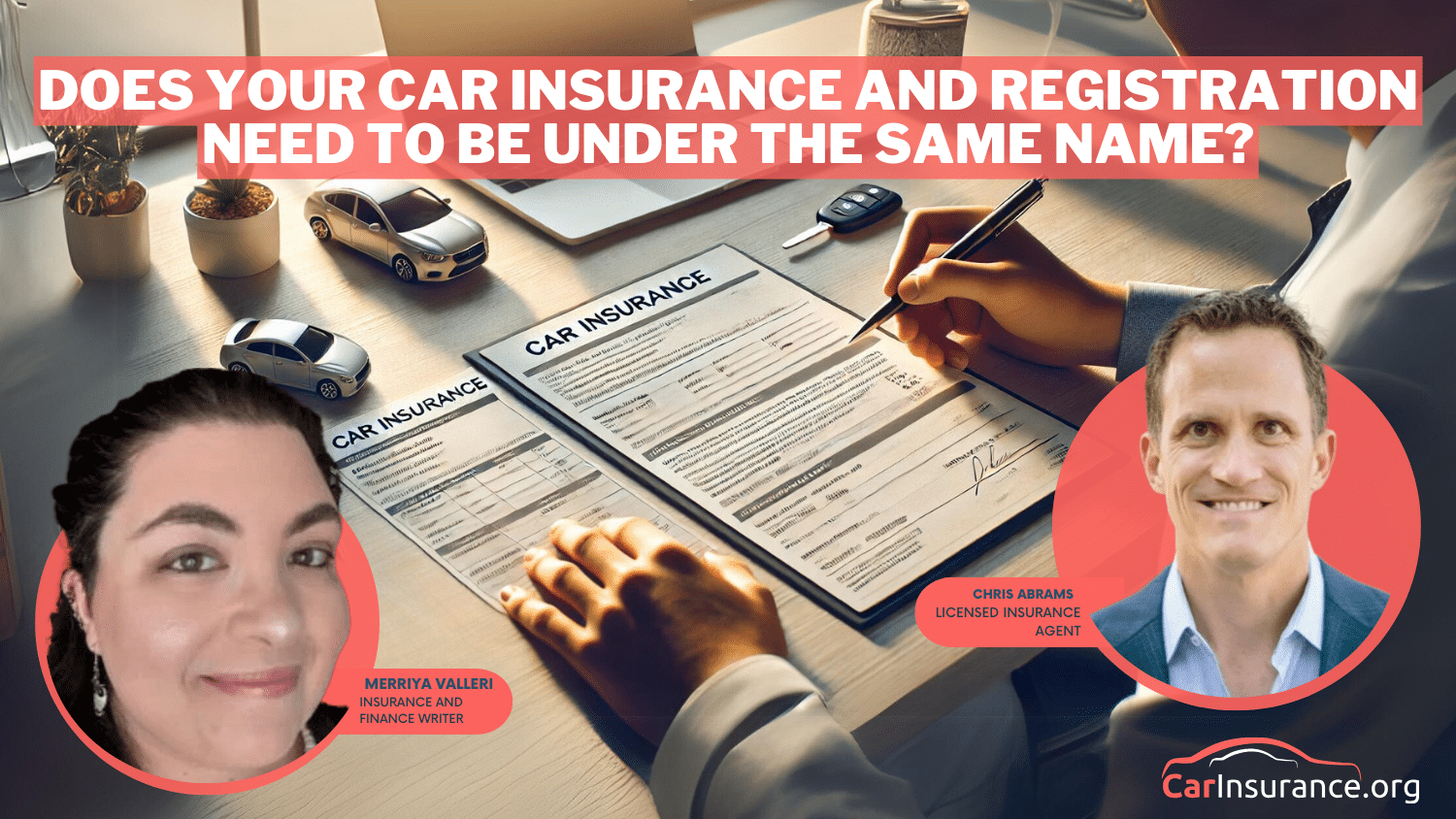Is it bad to have a car insurance driver monitor?
It's not a bad idea to have a car insurance driver monitor if you're a safe driver because you can save up to 30% on your rates. However, tracking devices collect data any time you drive, so there are privacy concerns. Additionally, some companies may penalize you by charging you fees or increasing your rates if you drive poorly. To decide if it's a bad idea to have an auto insurance driver monitor in your car, you'll have to weigh the risks and benefits as well as your driving habits.
Read more Secured with SHA-256 Encryption




Table of Contents
Table of Contents


Insurance Feature Writer
Rachel Bodine graduated from college with a BA in English. She has since worked as a Feature Writer in the insurance industry and gained a deep knowledge of state and countrywide insurance laws and rates. Her research and writing focus on helping readers understand their insurance coverage and how to find savings. Her expert advice on insurance has been featured on sites like PhotoEnforced, All...
Rachel Bodine


Licensed Insurance Agent
Jeff is a well-known speaker and expert in insurance and financial planning. He has spoken at top insurance conferences around the U.S., including the InsuranceNewsNet Super Conference, the 8% Nation Insurance Wealth Conference, and the Digital Life Insurance Agent Mastermind. He has been featured and quoted in Nerdwallet, Bloomberg, Forbes, U.S. News & Money, USA Today, and other leading fina...
Jeff Root
Updated November 2023
- Car insurance driver monitors track driver behavior like speed, mileage, braking, and time of day
- Car insurance driver monitors are typically used for usage-based insurance programs
- Drivers can save up to 30% using a driver monitor device under a usage-based insurance program, but there are privacy concerns
If you’re looking for ways to save on your car insurance, you may be wondering, is it a bad idea to have a car insurance driver monitor?
If your only concern is saving money, the short answer is no. Driver monitoring devices can significantly reduce your insurance rates. However, there are other factors to consider.
What are the risks of a car insurance monitoring device? What kind of data do the devices track, and how is it used? How do car safety and laws play into car insurance driver monitoring?
Read this article for everything you need to know about whether using an auto insurance monitoring device is a bad idea for you or not.
Before diving into the facts about car insurance monitoring devices, take a minute to enter your ZIP code into the tool on this page to get free car insurance quotes from companies in your area.
What is a car insurance monitoring device, and how does it work?
A car insurance monitoring device is typically either a device you plug into your vehicle or a smartphone app.
Car insurance companies use the device to track your driving habits to more accurately assess the risks you pose as a driver (rather than relying solely on the typical factors that affect the price of car insurance) and adjust your rates accordingly.
These devices are most commonly associated with usage-based insurance (UBI) programs. Types of data that monitoring devices can track include:
- Driving speed
- Braking habits (i.e., how hard you brake)
- Mileage
- Time of day you drive most often
- Where you drive
Based on this basic description of car insurance monitoring devices, you can see why whether using one is a little more complicated than a yes or a no. Some risks are associated with using these devices that can raise your rates.
Free Insurance Comparison
Compare Quotes From Top Companies and Save
Secured with SHA-256 Encryption
What are the risks of using car insurance tracking devices?
One of the primary risks associated with car insurance tracking devices is privacy. With all the data insurers collect (precisely what is collected varies by company and program), it’s no surprise that privacy is a concern.
As a result, some states have enacted legislation requiring insurance companies to be transparent about what data the devices track, how it is used, and more. Only you can determine if the savings outweigh the lack of privacy.
Another concern to keep in mind is how the data will affect your rates. Typically, these devices are considered an excellent rate reduction and savings tool.
However, companies like Progressive and Geico may use the data to increase your rates or include additional charges, depending on how you drive.
If you’re considering usage-based insurance or any coverage that includes the use of an insurance tracking device, there are a few questions you should consider asking potential insurers:
- Exactly what data does the device collect?
- Is each data type collected an individual contributor to your rate, or is all the data aggregated into a single risk/good driver number that determines your rate?
- Can the data negatively impact your insurance rates?
- Will you be penalized if you choose not to share information with the insurance company?
- Will the insurance company protect your data, or do they share/sell it?
How your insurance provider answers these questions can help you determine whether it’s a bad idea to use a car monitoring device.
Is it a good or bad idea to use a car insurance monitoring device?
Now that you know about some risks, let’s talk about the benefits.
Depending on the insurer and usage-based insurance program, you can save up to 30% on your rates. In some cases, driving monitoring apps have been shown to improve driving behavior as well.
So, is it a good idea for you?
If you’re a safe driver who typically doesn’t drive at night and your average annual mileage is less than 11,500, an insurance program that uses a tracking app may be worth considering.
Just keep in mind that any time you’re behind the wheel, you’ll be tracked and monitored.
Where can you buy usage-based car insurance?
If you’re thinking about buying usage-based insurance, some of the companies that offer this coverage include:
- AAA
- Allstate
- Geico
- Liberty Mutual
- Metromile
- Nationwide
- Progressive
- State Farm
Whether you decide to buy car insurance from one of these companies or another insurer, it’s always a good idea to ask the right questions (recall the suggestions we provided in the previous section).
You should also comparison shop by getting multiple quotes from different companies to ensure you get the best rate.
Free Insurance Comparison
Compare Quotes From Top Companies and Save
Secured with SHA-256 Encryption
Can the insurance tracking device in my car be used to deny my claim?
Many car insurance companies offer tracking systems that drivers can install in their cars to potentially reduce their premiums. Essentially, these tracking systems reward drivers for safe driving by giving them points.
Insurance companies are focused on their profit margins. That raises the question – what else could the insurance company be tracking using these discount devices? And how might they use that data in the future?
Is it bad to have a car insurance driver monitor?
A car insurance driver monitor could save you as much as 30% on your insurance rates, depending on your insurance company and the usage-based insurance program you’re enrolled in.
However, there are privacy concerns surrounding the amount and type of data collected and how it is stored and used by insurance companies.
Whether your driving habits will actually earn you a discount, the boring answer is: it depends.
The decision to use a car insurance monitoring device to save money on your insurance rates is ultimately up to you.
Get a FREE Quote in Minutes
Insurance rates change constantly — we help you stay ahead by making it easy to compare top options and save.




